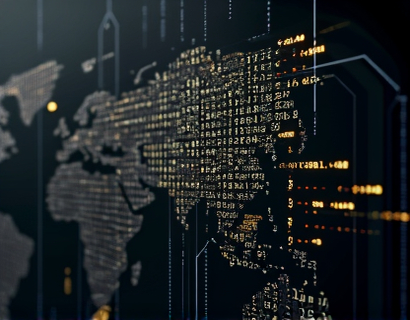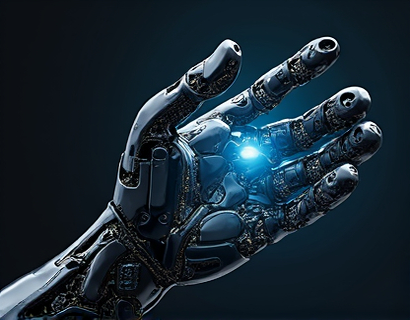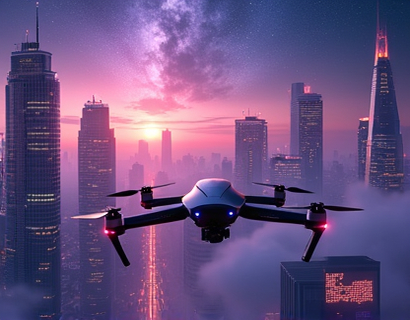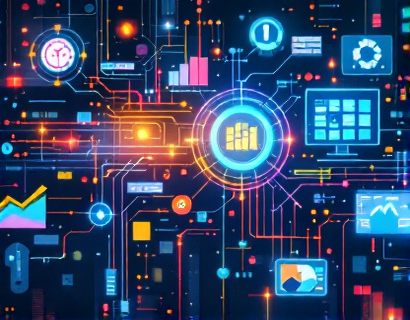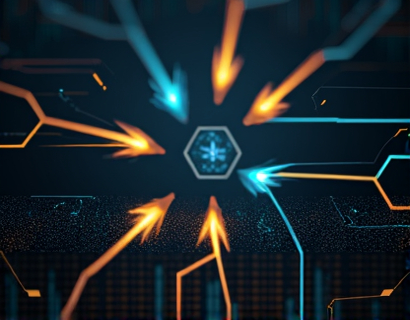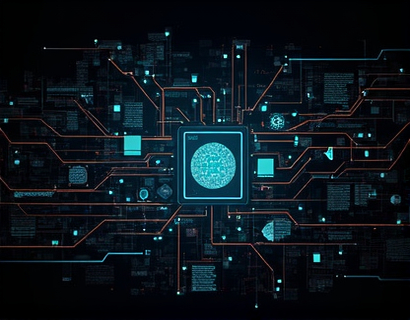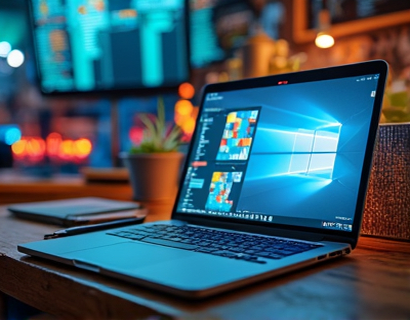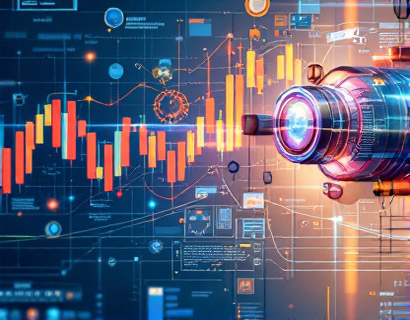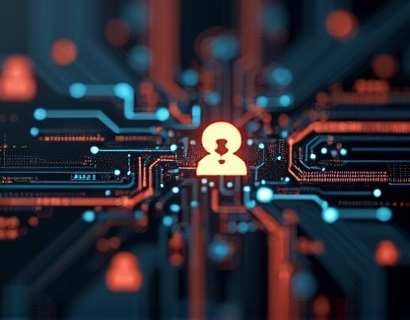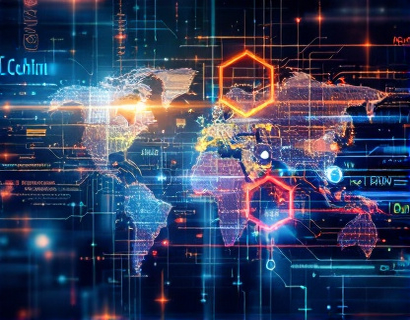Unlocking Enhanced Digital Experiences: Leveraging AI and Crypto for Innovative Solutions in the Ucosystem
The digital landscape is undergoing a profound transformation, driven by the convergence of artificial intelligence (AI) and cryptocurrency. This fusion is not just a technological curiosity but a powerful force reshaping how we interact with digital services and applications. For tech enthusiasts, digital innovators, and early adopters, understanding the synergy between AI and crypto is crucial for navigating and thriving in this new era. This article delves into the transformative potential of these technologies, exploring how their integration is unlocking enhanced user engagement and connectivity within the evolving digital ecosystem.
The Intersection of AI and Cryptocurrency
At its core, AI refers to the simulation of human intelligence processes by machines, particularly computer systems. These processes include learning (the acquisition of information and rules for using it), reasoning (using rules to reach approximate or definite conclusions), and self-correction. On the other hand, cryptocurrency is a digital or virtual token that uses cryptography for security and operates on a decentralized network, most notably blockchain technology.
The intersection of AI and cryptocurrency occurs where these technologies complement each other to create more efficient, secure, and user-friendly digital experiences. AI algorithms can analyze vast amounts of data from blockchain transactions, providing insights that enhance the functionality and security of crypto systems. Conversely, the decentralized and secure nature of cryptocurrency can provide a robust framework for AI applications, ensuring data integrity and user privacy.
Enhanced User Engagement through AI-Driven Crypto Solutions
One of the most significant impacts of combining AI and crypto is the enhancement of user engagement. Traditional crypto platforms often struggle with user adoption due to complex interfaces and lack of intuitive experiences. AI can bridge this gap by creating personalized user experiences. For instance, AI-powered chatbots can offer real-time customer support, answering queries and guiding users through complex crypto operations with ease. These chatbots can learn from user interactions, continuously improving their responses and becoming more effective over time.
Moreover, AI can analyze user behavior and preferences to recommend tailored crypto products and services. By understanding individual user patterns, AI can suggest optimal investment strategies, highlight relevant market trends, and even predict potential risks. This level of personalization not only enhances user satisfaction but also increases the likelihood of user retention and active participation in the crypto ecosystem.
Security and Trust through Blockchain and AI
Security is a paramount concern in the crypto world, and the integration of AI further fortifies the security of digital assets. AI algorithms can detect and respond to anomalies in real-time, identifying potential security threats before they materialize. Machine learning models can analyze transaction patterns and user behavior to flag suspicious activities, thereby enhancing the overall security of crypto platforms.
Blockchain technology, with its inherent transparency and immutability, provides a solid foundation for secure transactions. When combined with AI, the system becomes even more robust. AI can optimize blockchain protocols, improving transaction speeds and reducing energy consumption. For example, AI can help in the development of more efficient consensus mechanisms, such as proof-of-stake (PoS) variations, which are less resource-intensive than traditional proof-of-work (PoW) systems.
Trust is another critical factor in the adoption of crypto solutions. AI can enhance trust by providing transparent and auditable processes. Blockchain's decentralized nature ensures that all transactions are recorded and verifiable, but AI can take this a step further by offering real-time audits and compliance checks. This transparency not only builds trust among users but also attracts institutional investors who demand high levels of security and compliance.
Innovative Applications in the Digital Ecosystem
The synergy between AI and crypto extends beyond user engagement and security to innovative applications across various sectors. In finance, AI-driven crypto analytics can provide deep insights into market trends, helping investors make informed decisions. Smart contracts, powered by AI, can automate complex financial transactions, reducing the need for intermediaries and lowering costs.
In the realm of decentralized finance (DeFi), AI can optimize lending and borrowing processes, dynamically adjusting interest rates based on market conditions and user creditworthiness. This not only improves access to financial services but also promotes financial inclusion. AI can also enhance yield farming strategies, identifying the most profitable opportunities and managing risks effectively.
Beyond finance, the combination of AI and crypto is revolutionizing supply chain management. Blockchain ensures transparency and traceability, while AI can predict demand, optimize inventory levels, and streamline logistics. This results in more efficient and resilient supply chains, benefiting businesses and consumers alike.
Challenges and Considerations
While the potential of AI and crypto integration is vast, there are several challenges and considerations that must be addressed. One of the primary concerns is the regulatory landscape. The crypto space is still largely unregulated, and the introduction of AI adds another layer of complexity. Ensuring compliance with existing regulations while advocating for supportive frameworks is essential for the sustainable growth of these technologies.
Another challenge is the technical expertise required to develop and maintain AI-driven crypto solutions. Developing robust AI models that can operate effectively on blockchain networks demands a high level of technical proficiency. Collaboration between AI experts and crypto developers is crucial to overcome these technical hurdles.
Privacy is also a significant concern. While blockchain provides transparency, it can also expose sensitive information. AI can help mitigate this by implementing advanced encryption techniques and ensuring that user data is anonymized and securely stored. Balancing transparency with privacy is a delicate task that requires careful consideration and innovative solutions.
Future Prospects
The future of AI and crypto integration is promising, with numerous potential developments on the horizon. One exciting area is the emergence of AI-powered decentralized autonomous organizations (DAOs). These organizations leverage AI to make collective decisions, optimize resource allocation, and ensure transparent governance. DAOs can revolutionize how communities manage and fund projects, fostering a more democratic and inclusive digital ecosystem.
Another frontier is the integration of AI with emerging blockchain technologies like sharding and layer 2 solutions. These advancements aim to scale blockchain networks, making them more efficient and capable of handling a larger volume of transactions. AI can play a crucial role in optimizing these scalability solutions, ensuring that the network remains secure and performant.
Furthermore, the development of AI-driven virtual assistants specifically designed for crypto users can transform the user experience. These assistants can handle complex tasks such as portfolio management, transaction execution, and market analysis, all with a high degree of accuracy and speed. This level of assistance can empower users to navigate the crypto landscape with confidence and ease.
Conclusion
The fusion of AI and cryptocurrency is not just a technological trend but a transformative force that is reshaping the digital ecosystem. By enhancing user engagement, fortifying security, and enabling innovative applications, this synergy is paving the way for a more connected and efficient future. For tech enthusiasts and digital innovators, embracing the potential of AI and crypto is essential for staying ahead in the rapidly evolving digital world. As these technologies continue to mature, the opportunities for creating advanced and user-centric digital solutions will only grow, offering exciting prospects for all involved.



